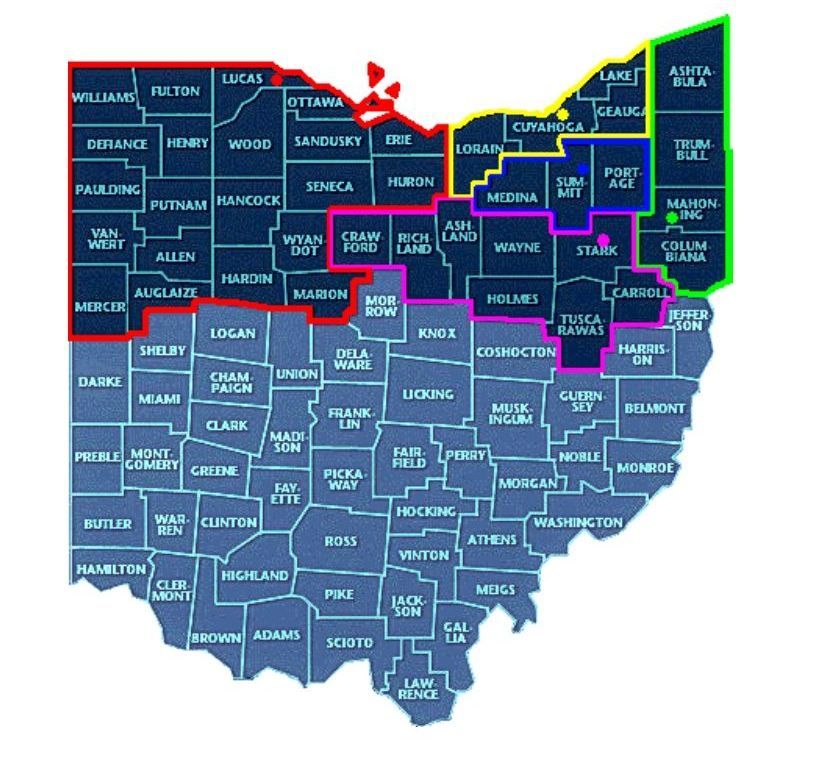Faqs
Frequently asked questions
-
Q: Do I qualify to file bankruptcy?
A: If you live in, work in, or own property in Ohio and you have not received a Discharge under Chapter 7 within the past eight years, or been dismissed under certain grounds within the last 180 days under a previous bankruptcy case, you qualify.
-
Q: How much do I have to owe to qualify for filing bankruptcy?
A: There is no minimum amount that a person must oi in order to file bankruptcy. Each person's financial situation is different, and each potential bankruptcy must be approached on a case-by-case basis.
-
Q. How much are the court fees for a Chapter 7?
A: The Chapter 13 court filing fee is $313.00. This can be paid at the time of filing. In some circumstance you can pay in installments or have the fee waived all together.
-
Q. How much are the court fees for a Chapter 13?
A: The court fee is $310.
-
Q. How much do you charge to represent me in a Bankruptcy?
My fees vary and are based on a sliding scale. The factors include household size, income, complexity of case and which chapter you choose. There is no obligation, but I will quote a fee once an analysis is done. In order to do a thorough analysis I need to verify what your assets and liabilities are.
-
Q. How can I pay for the Bankruptcy and court fees?
A: I accept cash. In addition, I accept debit cards. You don't have to come to the office to make a payment. You can call in your payments or you can pay online through my secure LawPay Website. I can accept a credit card payment only from a third party willing to help you pay to file bankruptcy.
-
Q: How Can I Stop Garnishments?
A: Both wage garnishments and garnishments other than personal earnings (bank attachments) will be stopped immediately upon the filing of a chapter 7 or chapter 13 bankruptcy. The automatic stay forces creditors to immediately stop all collection activity upon filing bankruptcy. A case number is issued by the court and creditors are notified by mail, electronic service and through the credit bureaus.
-
Q: What about Utility Shutoffs?
A: If you file chapter 7 or chapter 13, you can put delinquent utility bills in your case and prevent shutoffs. If your utilities are shut off, the utility companies must restore service when you file. They usually require a security deposit. Calling 211 will provide you with funds to pay a security deposit. I can also request that it be paid in three monthly payments. The security deposit is typically equal to one month's usage. If you are on the PIPP program, you will need to reapply.
-
Q: What about IRS Levies?
A: If the IRS has attached your wages, filing bankruptcy will stop collection efforts from the IRS. Some taxes can be discharged in bankruptcy. Others can be paid back through chapter 13. Please ask me about specific tax liabilities. Personal income taxes are dischargeable if the returns were filed on time and three years prior to filing a bankruptcy.
-
Q: How long will it take to complete the bankruptcy process?
A: Chapter 7 will take approximately four months; Chapter 13 will take three to five years.
-
Q: Can I keep my car?
A: Yes, but if you still owe money on it you will have to keep current on those payments in order to keep it. You may also be required to maintain full coverage insurance during the pendency of the bankruptcy proceeding if your vehicle is not paid off. Cars and other vehicles that are financed are subject to repossession if you fall behind on your payments. However, some creditors (Ford Motor Credit) require a Reaffirmation agreement in order to keep your vehicle.
If you have fallen behind and your vehicle is repossessed, chapter 13 will force the creditor to return the vehicle to you if they haven't already sold it at auction. Chapter 13 can also reduce the balance, interest rate and monthly payment on your vehicle.
-
Q: What is the difference between a secured debt and an unsecured debt?
A: Secured debt is a debt secured by property, and if you do not pay the debt the creditor can repossess the property. Examples of secured debts are a mortgage, property taxes, car loan and possibly furniture payments or electronics purchases on revolving credit terms.
An unsecured debt is a debt that is not secured by any property, such that if you do not pay the debt, the creditor does not have any property to repossess. Examples of unsecured debts are credit cards, unsecured signature loans, payday loans, medical bills and some taxes.
-
Q: Can anyone discriminate against me for filing bankruptcy?
A: No, it is against the law for anyone to discriminate against you for filing bankruptcy. Filing bankruptcy will not affect your civil rights, nor will it affect your eligibility for Federal student loans and grants.
-
Q: Will I lose my property?
A: In most cases you will not lose any of your property. The bankruptcy code allows certain exemptions for you to protect the property that you will need to reorganize your debt in order to get a fresh start. I will review your particular case to determine whether all of your property will be protected under the bankruptcy code.
-
Q: Will I have to appear in court?
A: In most cases you will not have to appear before a judge. You will, however, be required to appear at a meeting of creditor's to meet the Trustee appointed to administer your case. This is a very simple and routine meeting that will only last approximately ten minutes in most cases.
The trustee is appointed to review your case to make sure that the information in your bankruptcy petition/paperwork is accurate. It is also the job of the bankruptcy trustee to recover assets for distribution to creditors. However, most cases are “no assets” where most property is exempt, so that the court cannot take the property from you.
-
Q: Can I Save My Home?
A: If your home is in foreclosure and to be sold at a sheriff's sale, either chapter 7 or chapter 13 will stop the sale. If you are not current with your payments, chapter 13 will allow you to set up a repayment plan over time to catch up the delinquent mortgage payments.
If you are behind on your mortgage and file a chapter 7 petition, the mortgage company will ask for permission to foreclosure from the bankruptcy court. The filing of Chapter 7 will delay the foreclosure sale but will not necessarily avoid it.
Any mortgage deficiency balance after foreclosure will be discharged by the bankruptcy. Another option would be to try to negotiate a loan loan modification process with your mortgage company while there is a stay from the Bankruptcy.
-
Q: Can I Save My Retirement Account?
A: Retirement accounts such as a 401k, pensions and most profit sharing associated with retirement plans and even IRA's are protected assets that cannot be taken by the bankruptcy court to pay your creditors. Therefore, if you file bankruptcy, in most circumstances you will be able to keep your retirement plan, pension, 401K and IRA. You should not however dump money into an IRA immediately before filing bankruptcy.
-
Q: Will Bankruptcy Stop Creditor Harassment?
A: The filing of the bankruptcy either chapter 7 or chapter 13 immediately puts a halt to creditors calling you, suing you, garnishing your wages, attaching bank accounts, putting a lien on your property, foreclosing and repossessing your vehicles.
-
Q: Should I Try To Pay My Debts Through Debt Consolidation?
A: Many clients when considering bankruptcy instead choose to enter into debt repayment plans through Debt Consolidation agencies. Although some agencies are legitimate, many will charge you exorbitant fees up front and not begin negotiating with your creditors until they have accumulated thousands of dollars.
In the meantime, you may be sued by creditors who can then obtain a judgment and garnish your wages while you are paying the debt consolidation agency. You need to be very careful about working with out-of-state agencies. If your finances have reached the point where you are already behind with your payments to creditors, paying debts to a debt consolidation agency who in turn may not send money to your creditors for months will serve only to worsen your situation. Therefore, it is imperative that you consider all of your options first before getting into a debt repayment program, through such an agency, since it simply may not help you resolve your debt issues and provides you with a fresh start that you can obtain through the bankruptcy process.
In addition, if the Debt Relief agency is able to compromise some of your debts, you may end up with tax liabilities. The creditor can file a 1099C of 1099F to the IRS for forgiveness or cancellation of debt. You will not incur such a liability, by mismanaging debts through Bankruptcy.
You will not incur such a tax liability, by filing a Bankruptcy.
-
Q: How will filing bankruptcy affect my credit rating?
A: Filing bankruptcy will negatively impact your credit score. However, if you are considering bankruptcy, your credit score is probably already damaged. In fact, filing bankruptcy can be the first step in improving your credit rating.
Chances are you will be offered a credit card prior to your discharge. The goal is to be smart with your credit in the future. Reaffirming a car note or getting a new car loan will also boost your score.
Even though bankruptcy will negatively impact your credit rating, there are a number of financial institutions that are willing to extend you credit if you are willing to pay the higher interest rates. The more time that passes, the less the bankruptcy will negatively impact your credit rating.
Therefore, the bankruptcy will discharge all of your debts and give you the opportunity to have a fresh start and rebuild your credit over time. Although bankruptcy stays on your credit for 10 years, there is life after bankruptcy.



